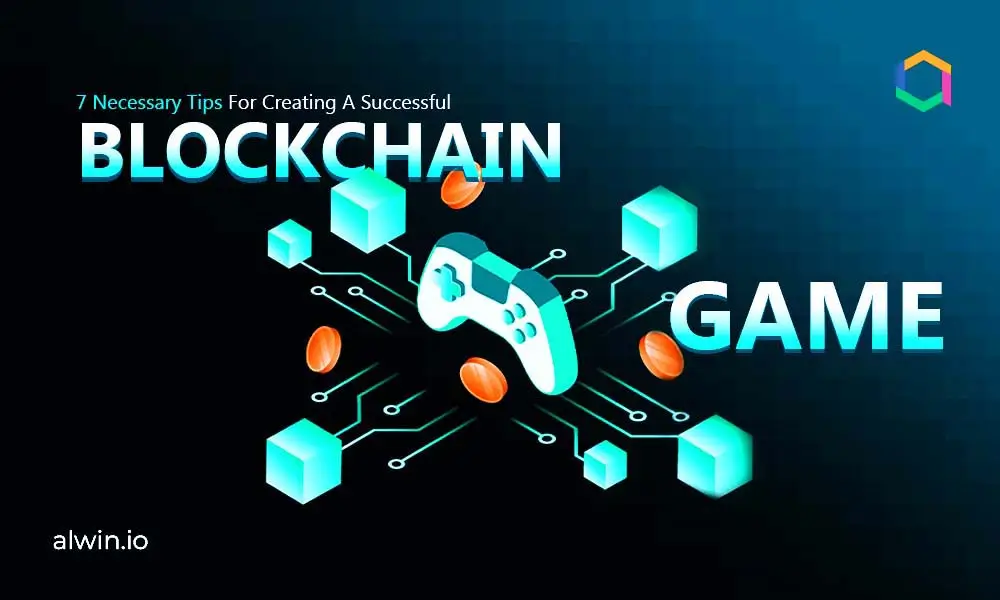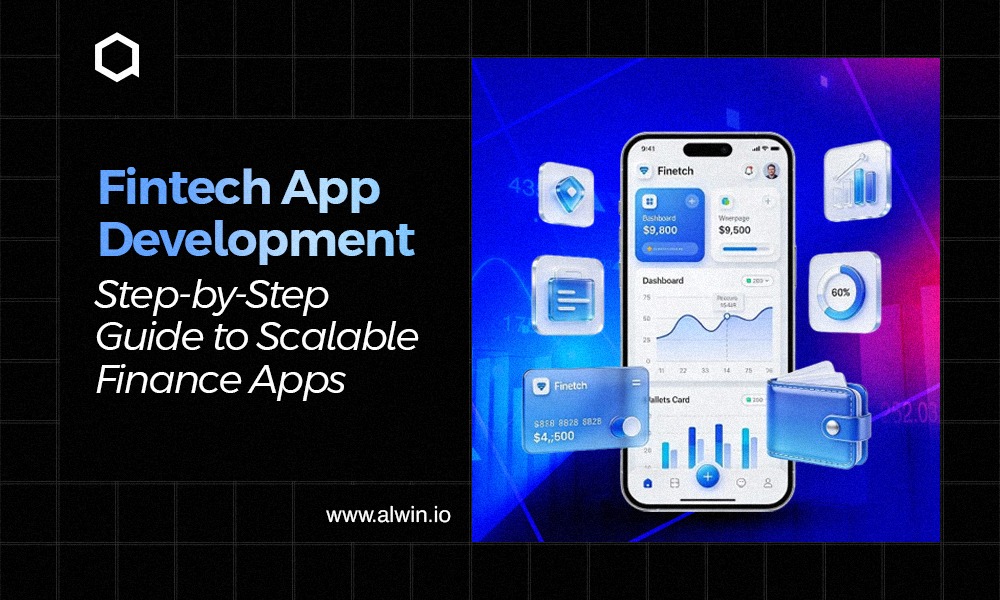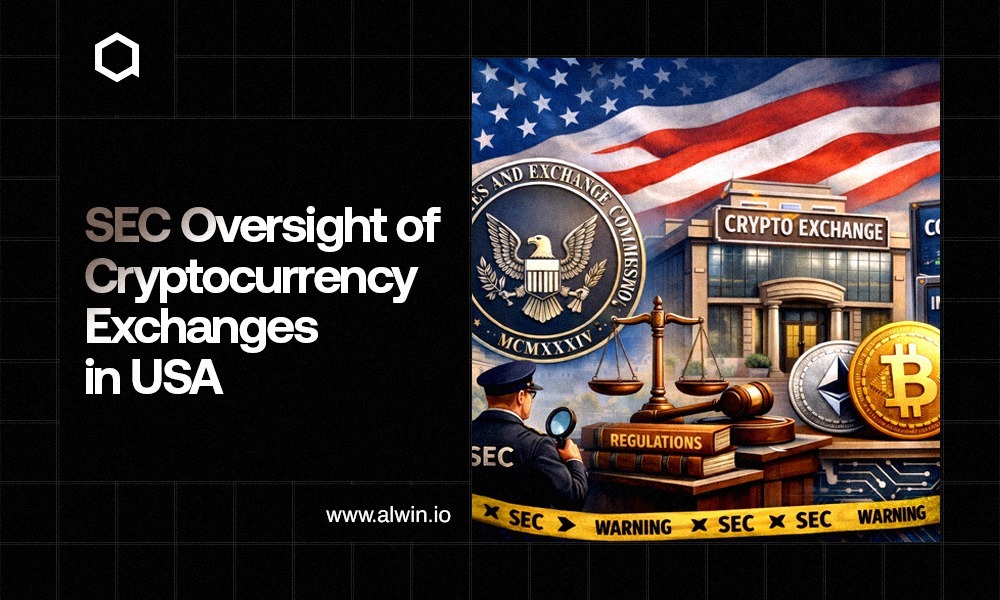Blockchain gaming is a game-changing innovation in the gaming industry, blending technology, creativity, and user engagement like never before. Blockchain games are not just entertaining players but also enabling them to own in-game assets, participate in decentralized economies, and benefit from real monetary rewards. Recent figures show that blockchain gaming had a significant impact on the expansion of the Web3 sector, with tens of thousands of gamers embracing the trend in the year 2024 alone.
Creating a successful blockchain game, however, requires more than just innovation—it requires strategic planning, understanding user behavior, and integrating the right technology. We're going to show you how to make a blockchain game that grabs players and uses the full potential of the technology.
Blockchain Gaming Trends and User Growth in 2024
The exponential growth of blockchain gaming in 2024 highlights its potential as a flourishing segment within the digital entertainment sector. In August 2024, the blockchain gaming ecosystem had 4.2 million daily active users. This demonstrates ongoing involvement, despite the increasing competition from other industries, such as AI. Games like Pixels and Forgotten Runiverse drove significant user activity on popular networks such as Ronin.
Blockchain gaming isn't the only thing that has seen user growth. Blockchain gaming ventures were one of the top-funded segments in the cryptocurrency space by mid-2024, with nearly $580 million raised. Developer enthusiasm and investor confidence in the potential of Web3 gaming are reflected in this.
With the rising adoption of innovative gaming models like play-to-earn and interoperable assets, blockchain games are expected to further capture mainstream interest shortly. These advancements highlight the industry's momentum and its ability to redefine gaming experiences globally.
What is a Blockchain Game?
Blockchain games are video games that use blockchain technology to offer unique features like true ownership of in-game assets, transparency, and decentralized gameplay. Game developers control all in-game assets and rules in traditional games, but blockchain games give players full ownership of their digital items.
For example, if you earn a rare sword in a blockchain game, you own that sword as a digital asset on the blockchain, often represented as an NFT. You can use it across different games or platforms because its ownership is recorded on a public, tamper-proof ledger.
Blockchain games use cryptocurrencies as a reward mechanism, allowing players to earn real-world value through gaming. Gaming is more interactive and rewarding than ever. This strategy has led to the rapid growth of blockchain gaming within the gaming sector, attracting countless gamers and game creators around the globe.
Seven Key Strategies for Successfully Launching a Blockchain Game
Here’s an expanded guide to the Seven Key Strategies for Successfully Launching a Blockchain Game, with added details and examples for each strategy:
Define a Unique Value Proposition (UVP)
A successful blockchain game stands out by offering something distinct. This could be groundbreaking gameplay, innovative NFT utilities, or a new way to engage in the metaverse. For example, games like Axie Infinity introduced the play-to-earn (P2E) model, allowing users to earn real income. Think about how your game can provide value beyond mere entertainment whether it’s through collectible NFTs, governance mechanisms, or exclusive in-game experiences.
Additional Tip: Conduct market research to understand what players want and find gaps that your game can fill. For instance, integrating AR/VR elements alongside blockchain can be a game-changer.
Select the Right Blockchain Platform
Choosing a blockchain impacts everything from transaction speeds to user costs.
Ethereum is great for decentralization but has higher fees, while Polygon or Solana offers scalability and cost-efficiency. Some games prefer custom blockchains tailored for gaming, like Immutable X, designed for NFT-heavy games.
Example: Gods Unchained chose Immutable X to reduce gas fees for its NFT transactions, enhancing accessibility for players.
Pro Tip: If targeting global audiences, prioritize platforms with multi-language support and integrations with wallets like MetaMask or Trust Wallet.
Focus on User Experience (UX)
Blockchain gaming can feel overwhelming for newcomers due to wallet setups, gas fees, and decentralized exchanges. Focus on intuitive designs and seamless onboarding processes. For example, Thetan Arena simplifies wallet linking and offers free-to-play options, encouraging broader participation.
Additional UX Features
- Integrate "one-click" wallet connectivity.
- Provide step-by-step tutorials.
- Implement a “guest mode” for casual players before committing to blockchain elements.
Build a Sustainable Economy
A sustainable in-game economy is the backbone of a successful blockchain game. Avoid inflation by implementing mechanisms that balance token supply and demand.
Example: The Sandbox balances its NFT land sales with limited token issuance, ensuring the economy isn’t oversaturated. Additionally, governance tokens encourage user participation in the game's ecosystem.
Pro Tip: Introduce staking mechanisms to increase player engagement and reduce token circulation in the short term, enhancing value over time.
Leverage Community Engagement
Your game’s success hinges on the community. Platforms like Discord, Telegram, and Reddit are vital for discussions, feedback, and fostering loyalty. Games like Axie Infinity and Decentraland hold regular AMAs, community events, and reward programs to keep users engaged.
Additional Tips:
- Use token airdrops to attract early adopters.
- Organize competitions or tournaments with NFT or token prizes.
- Allow players to vote on updates using governance tokens.
Ensure Security and Transparency
Since blockchain games involve financial assets, ensuring trust is crucial. Smart contracts must be audited to avoid hacks, and game rules should be transparent. For example, CryptoKitties maintains trust by making its breeding algorithms public.
Pro Tip: Partner with third-party security firms to perform regular audits and share results with your community. This transparency builds confidence.
Implement Effective Marketing
Marketing is critical for attracting players in a competitive landscape. Beyond traditional social media campaigns, consider influencer partnerships, in-game collaborations, and participating in blockchain expos.
Example:
Alien Worlds utilized partnerships and gamified advertisements to build a loyal player base. Pre-launch activities like NFT giveaways or early-access trials can also generate buzz.
Pro Tip: Use blockchain-specific platforms like DappRadar or CoinMarketCap to list your game and reach target audiences.
Launching a blockchain game requires a mix of creativity, strategy, and technical expertise. By defining a clear UVP, engaging communities, and focusing on sustainable economies, your game can thrive in the competitive blockchain gaming space. Collaborating with a game development company can help bring your vision to life and ensure technical precision. Take the first step toward creating your groundbreaking blockchain game today!
Developers can carve out a niche in the booming blockchain gaming industry by following these tips and drawing inspiration from successful examples. Are you excited to realize your dream? To get started, partner with a leading Blockchain Game Development Company.
Upcoming Trends and Features to Examine
Blockchain gaming will change the gaming world by blending cutting-edge technology with immersive gameplay. Blockchain games are no longer just about NFTs or play-to-earn mechanics. They are evolving into expansive ecosystems with endless possibilities.
Metaverse Integration
Advanced Interoperability
AI-Driven Gameplay
Enhanced accessibility
Social Gaming Experiences
Augmented Reality (AR) and Virtual Reality (VR)
It's a great time to approach the Best Game Development Company, as the future is bright for those who want to get into this industry.
Create your Blockchain Game Right Away
It's not just about joining a trend, it's about being a part of the transformational shift in gaming that's happening now. Developers can introduce true ownership of in-game assets, enhanced transparency, and immersive play-to-earn experiences that players love using blockchain technology. Build NFTs, design sustainable in-game economies, or build a community-driven platform, the possibilities are endless and impactful.
There is no better time to innovate and lead the gaming industry toward decentralized solutions. To bring your ideas to life get the support of a reliable blockchain game development company. Build a game that captivates players, shakes up the industry, and leaves a lasting impression. You deserve the best start to your vision.



